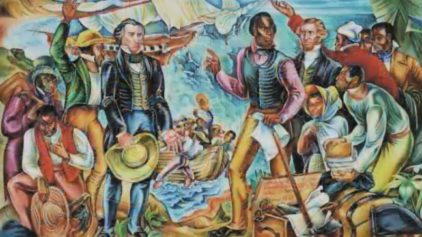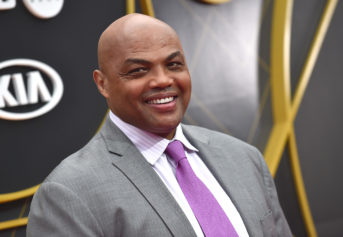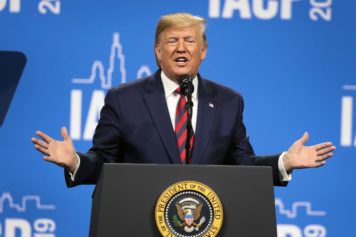This semester, at a historically Black college, I taught a course on African liberation movements that, in part, examined how such activism in Africa influenced Black Power across the globe. Most of the students in the class had not previously studied Africa and knew very little about Black Power.
After a few weeks, one student said she was ashamed that she used to see “Africa as one country” with “beautiful animals and textiles.” Another realized that he had “stereotyped an entire continent” despite the fact that he was from Chicago. “People stereotype where I’m from all the time,” he lamented. “Even when my friends come to visit me, they ask me if they have to worry about getting shot when they walk outside. They don’t seem to know that we have imaginations; we are creative and have families who work hard. There’s a lot going on in Chicago. I realize that I was doing the same thing with Africa.”
Exposure to independence movements in places like the Democratic Republic of the Congo, Ghana and Guinea; liberation wars in Angola, Mozambique and Guinea-Bissau; and the anti-apartheid movement in South Africa in the class readings and discussions helped the students develop a global consciousness in thinking about racial, gender and economic justice and aided them in understanding the nature of struggle and the legacies of racial and colonial oppression. It was powerful to discuss these struggles at an institution so critical to the lives of Black students and the larger community. An institution that struggles for funding and survival in a national environment that is hostile to its existence and in a climate of corporatized university culture. Whether the students and surrounding community will come first in this moment is an open question.
We discussed the “freedom dreams” of movement activists, as well as their critiques of colonialism and white supremacy. We read the work of Franz Fanon, Assata, Aimé Césaire, Amílcar Cabral, Steven Biko, Mamphela Ramphele, Walter Rodney, Kwame Turé (also known as Stokely Carmichael) and hosts of others. Students provocatively made connections between the past and the present, between conditions in places on the other side of the world and in their own hometowns. They talked about systems of oppression that have changed over time and they learned about people, some their age, who challenged those systems.
Within the first two weeks, one student asked, “Well, if colonialism and white supremacy are so ingrained in the fabrics of societies, doesn’t that mean we have to reinvent the whole system?” I love those types of questions, and my answer went something like this: “Well … yes! How can we do that? How have people approached this in the past? How do they do so now?” Several of them plan to be educators and they felt strongly that they wanted to start with very young children, by creating programs that challenged these ideas almost from birth. Others argued that we needed a global movement and that it was more possible now than ever before because of social media.
When another student realized that the Black Panthers were anti-capitalist, she exclaimed in surprise, “They wanted to bring down capitalism? What were they going to replace it with?” I told them that the Panthers merged a number of ideologies, including revolutionary nationalism, Maoism and intercommunalism. I reminded them that some of the authors we read argued that even our imaginations are colonized, which prevents us from thinking beyond the current systems. I asked them if they could imagine a system that put people ahead of profits. It was a challenge, but they were open to thinking about it.
The discussions of Black Power were often complicated because activists approached Black self-determination from different perspectives and because sometimes people think that Black Power is anti-white rather than anti–white supremacy. Interestingly, sometimes students think all activists were extremists rather than recognizing Black Power as a strategy for Black liberation and a response to extreme conditions. In particular, we discussed their focus on the most marginalized, self-determination, self-defense, the critique of capitalism, the goal of removing the spiritual and cultural cancer of eurocentrism, the analysis and exposure of state-sanctioned violence and connections to Third World liberation struggles.
In one of my sadder moments during the class, an African-American male military student responded to the reading by saying, “This guy seems very angry about colonialism, but without it, none of us would be here today.” I suggested that some people also say the same thing about slavery, and he shrugged, responding, “Well … yeah.”
What kind of education had this student experienced that kept this ideology intact and unquestioned? He had experienced at least 16 years of school and this college may be his last stop of formal education. His debates with his peers and with me helped him start to recognize the structural conditions that Black people are facing worldwide and the problems inherent to a system with embedded exploitation. I came to enjoy listening to how he made sense of the material he was reading and the things that stood out to him.
As an educator, I constantly think about how to expose students to the ways activists challenged deeply structural and seemingly intractable conditions in the past. I push them to imagine beyond what we see now, to develop a vision for the world and to engage in struggle for a better and more just future, through whatever approaches makes sense for them. HBCUs are a powerful vehicle for this possibility. I have never had a body of students that connected so clearly and directly to the information I was teaching.
On this historically Black campus, infrastructure, systems and funding are deep and significant challenges. The lack of access to basic resources for teaching and learning speaks to the economic disinvestment and organized abandonment faced by many institutions. The digital divide is real. The politics of survival are serious. Sometimes, things just don’t work and no one knows why. In some circles, eurocentrism still rules in teaching despite efforts to change the curriculum. Some persons, who are not necessarily committed to Black students, much less to Black liberation, hold key positions. Some of the white professors complained incessantly about students who don’t read, who don’t belong in college or who are generally subpar. For some, it is a response to feeling unable to inspire students who often are under siege in their lives; regarding others, I wonder why and how they found themselves teaching on this campus, on grounds that are beyond sacred, where people laid their lives on the line so that these students could have a chance at life.
In this mire, I also have encountered professors of all races who would go to the ends of the earth for students, who see this work as part of a larger project of social justice, who have vision and courage that defy their age or confirm their wisdom. They have challenged me to step up my game and to rise to the occasion myself. And compared to predominantly white institutions (PWIs), where the administrations “struggle” to hire talented Black Ph.Ds, an abundance of Black people with doctorates exist here, people who excel in their fields despite lack of support and colonial-esque situations.
Many people don’t realize that some HBCUs were not founded by Black people nor were they based on a mission of self-determination. Sometimes, they were founded in conditions more similar to colonial missionary educational initiatives in the Caribbean or in Africa. People of African descent took on these institutions and some worked to decolonize them, while others simply worked to model them after PWIs. I have a newfound respect for those who fight the good fight at these institutions, who are developing our next generations of Black doctors, teachers, community organizers, scientists and visionaries. These campuses remain critical spaces for educating, supporting, emboldening, and, sometimes, decolonizing.
Last year, an image circulated on Facebook of a young Black woman sporting a natural haircut walking past a graffitied wall: “Always remember, this university belongs to us.” It was an image from South Africa taken in the midst of the #FeesMustFall movement. #FeesMustFall and sister movements declared to the world that for Black South Africa, the promise of the movement against apartheid had not been fulfilled. In particular, higher education still needed to be decolonized, made financially accessible and infused with a vision of Black liberation.
HBCUs belong to us, too, and we must both support them and hold them accountable. As a community, we help determine whether they will fulfill their mission or betray it.
——————————————————————————————
Nicole B. is a professor of Africana Studies and History from Brooklyn, N.Y.


